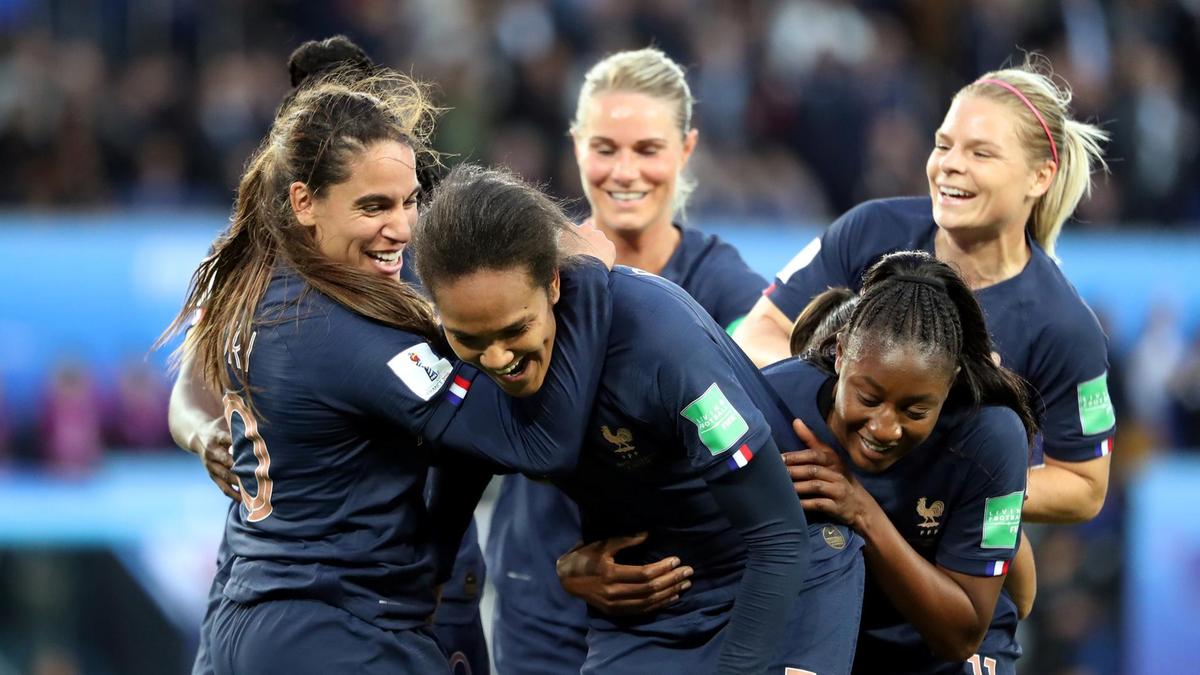Summers are usually the most boring time of the year for football fans. There’s a complete hiatus from football for almost a month, with transfer gossip and rumours trying to fill the void left by the absent action.
Thankfully though, this year we have the FIFA Women’s World Cup in France to compensate for the lack of football, as the top 24 teams from around the world will give their all to win the biggest honour in world football.
However, there is a problem.
From the loud online support groups to my friends with their over-the-top love for European football, nobody seems to really care about the tournament. I’ve seen a host of reactions, ranging from sheer surprise about the existence of such an event, to mocking and even outright ridiculing the women’s game as ‘not the real thing’.
This attitude and the lack of awareness about women’s football is not really surprising to me, given how women’s sports in general has always been treated. From being called ‘weak’, ‘boring’ and even ‘biologically inferior’, women in sports have faced sexism on all fronts, and football is no exception.
In fact, women’s football was banned in Britain (considered the home of football) until 1971 and came under the FA’s umbrella only in 1993.
This is the eighth edition of the FIFA Women’s World Cup.
Gender pay gap in football
The USA national team is the most successful one as it has won the coveted trophy thrice. Interestingly enough, the US women’s team is embroiled in a discrimination lawsuit back home against their employee, the US Soccer Federation.
The complainants have sued the Federation over gender discrimination and counts of unequal pay. They claim that “women soccer players can earn as little as 40 percent of what men on the national team rake in,” citing the US Soccer Federation’s 2016 budget figures. This fight against the gender pay gap is not restricted to the American team but is rather an institutional endemic at FIFA.
Last year, FIFA President Gianni Infantino announced a two-fold increase in the total prize money for the Women’s World Cup, taking the amount to a total of $30 million. While the money seems impressive, it pales in comparison to what their male counterparts earned from the World Cup last year.
According to a CNN report, during the 2018 FIFA Men’s World Cup, 32 teams competed for $400 million in prize money. The champions, France, took home $38 million — more than what all 24 women’s teams will compete for in 2019. Not only this, it wasn’t until 2007 that the women champion team took home any prize money at all.
Other forms of sexism in football
It’s not just economically that women footballers face everyday sexism.
The 2015 Women’s World Cup in Canada was fraught with controversy for hosting the tournament on artificial turf, which is not considered safe for professional football.
Last year, the winner of the first Ballon d’Or Féminin (football’s highest individual honour) was asked whether she can ‘twerk’ after receiving her award. For this year’s World Cup, the German Women’s team had to come up with a quirky advertisement highlighting the ignorance and hostility towards their game, despite having won the tournament twice.
As if fighting for equal pay and facing gender stereotypes wasn’t enough, this year’s World Cup has been rocked by a series of sexual harassment accusations. From former FIFA President Sepp Blatter to Ahmad Ahmad, the president of Africa’s football confederation, there’s a growing amount of allegations against powerful men, who have repeatedly used their positions to harass or abuse female players.
In Afghanistan, Keramuddin Keram, the country’s former national football chief has been banned for life – along with a fine of $1 million – after a FIFA enquiry found him guilty on accounts of assault and harassment of the players of the women’s national team.
Despite all this, women footballers have continued to shine on the pitch.
Just this week, the US national women’s soccer team beat Thailand’s team 13-0, scoring more goals than the men’s national soccer team has scored in every World Cup since 2006 combined. Teams like that of Japan, USA and Norway have won the World Cup for their nation – a feat that none of their men’s team have been able to achieve.
In an era of #MeToo and #Time’sUp, wherein women have pushed back the contours of patriarchy all over the world, it is rather disheartening to see my favourite game being reduced to an androcentric paradigm.
Football is the people’s game. But it cannot hope to be termed as one if it continues to be mired in sexism and overlooks the problems in women’s football.
Adarsh Singh is currently pursuing his BA in Political Science from Hindu College, University of Delhi.
Featured image credit: Reuters

